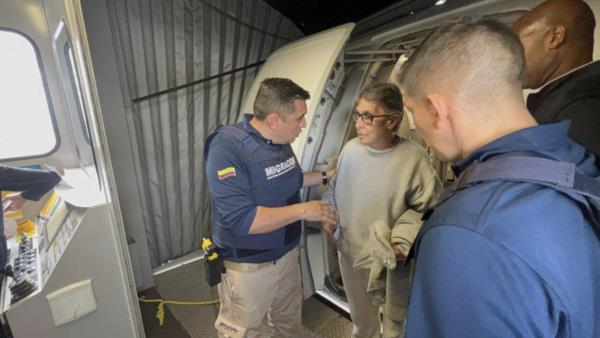
The recent return of former drug trafficker Fabio Ochoa to Colombia following his deportation from the United States has reignited painful memories for victims of the notorious Medellín Cartel. Ochoa's release in Colombia has stirred mixed reactions, with some expressing disappointment at the decision to allow him to walk free.
The Medellín Cartel, led by Pablo Escobar, was responsible for a wave of violence in Colombia during the late 1980s and early 1990s. The cartel targeted police officers, politicians, judges, journalists, and civilians in its brutal campaign against the Colombian state's anti-drug efforts. Historians estimate that the cartel was responsible for around 10,000 killings during this period.
Ochoa, a key figure in the cartel, spent years in Miami overseeing cocaine distribution. Despite denying involvement in the cartel's violent activities, many victims and their families remain skeptical of his claims.
Colombian authorities faced criticism for not pursuing charges against Ochoa upon his return. Calls have been made for Ochoa to cooperate with human rights groups investigating the cartel's atrocities and for prosecutors to question him about his role in the crimes committed by the cartel.






Victims of the Medellín Cartel, such as Bogotá Mayor Carlos Fernando Galán and foundation leader Gonzalo Enrique Rojas, are demanding justice and truth regarding the cartel's actions. Galán, whose father was assassinated by cartel hitmen, labeled Ochoa's freedom as unacceptable, while Rojas emphasized the importance of uncovering the truth behind the cartel's crimes.
Ochoa, who served over 20 years in a U.S. prison for drug trafficking, maintains that he was wrongly accused and has already paid for his crimes in Colombia. His return presents an opportunity for authorities to delve into the cartel's dark past and shed light on unresolved mysteries, such as the bombing of a commercial plane that claimed numerous lives.
As Colombia grapples with the legacy of the Medellín Cartel, victims and advocates stress the need for accountability and transparency to address the pain and suffering inflicted by the cartel's reign of terror.







